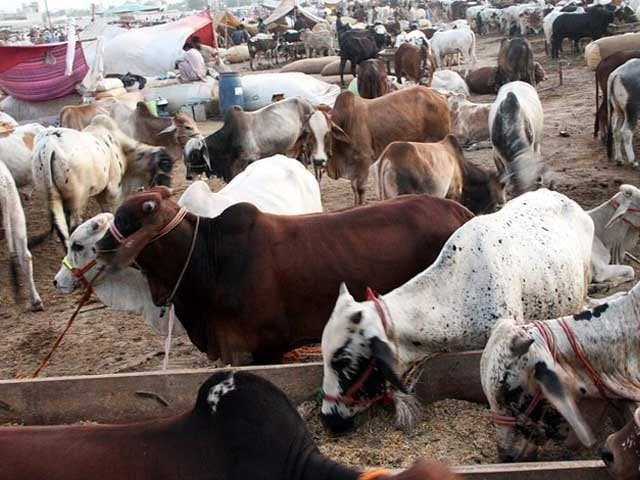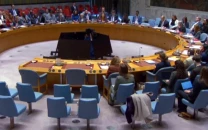Slow sales : Business dwindles for fodder sellers
People opt for online and communal sacrifices this Eidul Azha

It is common to see makeshift fodder stalls sprouting across various bazaars in Islamabad in advance of Eidul Azha. However, this year has been different for many businesses based around the Muslim festival of sacrifice, and the same is the case for the fodder industry. Days before Eid, several cattle fodder stall owners complain that there hasn’t been enough business this year, given the fear of coronavirus which has kept people from coming to the markets.
On one hand, there have been significantly less cattle markets setup in the capital this year as compared to previous years. The reason being that while the virus threat still looms, many across Islamabad and Rawalpindi have chosen to opt for safer alternatives like online sacrificial services and communal sacrifices. On the other hand, this has led to a drop in the number of buyers in the city’s fodder markets, driving stall owners towards financial losses. “Eid is just a few days away and there has been next to no sale at fodder markets in Para Peshawar Mor, Karachi Company and Bara Koh so far. Prices of fodder ingredients like wheat, gram, lentils and cotton has also gone up as a result of the previous lockdowns. A one kilogram packet made of lentils and Bnula has been fixed at Rs.50 to Rs70, while a five kilogram pack costs between Rs.100-200,” shared a market source.
Govt announces Eidul Azha holidays
According to Mustaq Ahmed, a fodder stall owner in Islamabad, all of the fodder for sale in the twin cities would be brought from Sialkot, Lahore and Faislabad in the past. But now, most of it is produced locally in Rawalpindi and Islamabad. It takes about two to three days to prepare the fodder, while the greens are brought in from the countryside. These are perishable goods which can be easily spoiled by rain or heat, so if the fodder is not sold in time it can mean severe losses for stall owners. “At the moment, most of Islamabad’s biggest sectors have prohibited keeping livestock animals while there are far less animals in the cattle market too due to the increased animal prices. This has further encourage people to go for online qurbani and communal sacrifice, which is killing our business.”
Speaking to The Express Tribune, Chand, who has been associated with the fodder business for generations, shared that setting up a fodder stall can cost up to Rs60,000 during Eid season, so there’s a lot at stake. Although business usually picks up speed closest to Eid but unfortunately this year, there are more sellers I the market than buyers and the inflation has put us in a situation where we can’t even offer discounts,” he lamented.
'Qurbani App' launched ahead of Eidul Azha
Whereas, as per Syed Sajjad Hussain, a resident of Islamabad said that it is the increase in fodder price this year, which has also kept many people from getting their sacrificial animals well before Eid. “Most of the animals are brought from villages and keeping them in the city incurs a higher cost of upkeep. If they are not properly fed over a period of 10-12 days, it can result in weight loss, which is why most people prefer getting their sacrificial animals closest to Eid.
Published in The Express Tribune, July 27th, 2020.


















COMMENTS
Comments are moderated and generally will be posted if they are on-topic and not abusive.
For more information, please see our Comments FAQ